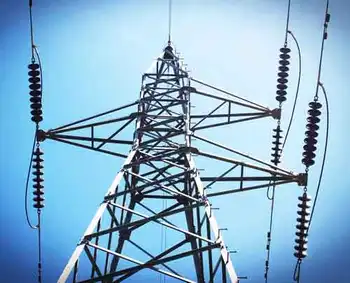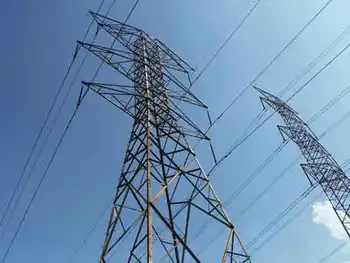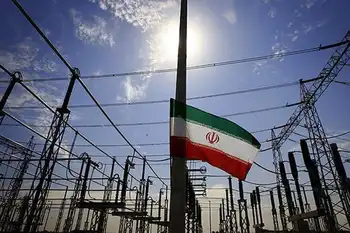TVA ratepayers may be stuck with ash cleanup bill
By Associated Press
Arc Flash Training CSA Z462 - Electrical Safety Essentials
Our customized live online or in‑person group training can be delivered to your staff at your location.

- Live Online
- 6 hours Instructor-led
- Group Training Available
The total cost of cleaning up last month's accident isn't yet clear, but the bill will be staggering. Extra workers, overtime, heavy machinery, housing and supplies for families chased from their homes and lawsuits are among the costs that are piling up.
And with few other places for the Tennessee Valley Authority to turn to cover the costs, the utility's 9 million customers in Tennessee and six surrounding states will bear the brunt in higher electricity rate hikes in the future, TVA Chairman Bill Sansom told The Associated Press.
"This is going to get into (electric) rates sooner or later," Sansom said. "We haven't even thought about going to Washington for it."
When a dike broke December 22 at the Kingston Fossil Plant, some 1.1 billion gallons of sludge was released from a 40-acre settlement pond, blanketing nearly 300 acres in a rural neighborhood up to 9 feet deep in grayish muck and spilling into the Emory River threatening drinking water.
Though Sansom said the utility hasn't totaled how much it has spent so far, it has put more than 200 employees and contractors with heavy equipment to work on the cleanup since the dike broke. And already, 230 families have contacted TVA for various assistance — everything from testing their private wells to monitoring their air, erecting fences, cleaning their driveways and providing temporary housing.
Forty of those families have joined a pending lawsuit with several environmental groups demanding the federal courts levy fines and assure the community is made whole. Attorneys involved expect the number of litigants to grow into the hundreds.
Several local residents traveled to Washington to attend a Senate hearing on the spill. "We are not looking to punish TVA, we just want them to clean up the mess they created," said Ron Smith of Harriman.
"We want it out of there," Teresa Riggs said of the sludge. "We are afraid for our health."
There are potentially huge claims for class-action damages. Environmental advocate Erin Brockovich, made a celebrity by Julia Roberts' Oscar-winning movie about a community's fight against contaminated water, and a New York law firm has met with the victims.
"I've heard some people say billions," said Steve Smith, director of the Knoxville-based Southern Alliance for Clean Energy. "I don't believe that number. I think it is probably hundreds of millions. I mean, I don't think they are going to get out of this thing for less than $100 million."
Everyone points to a similar ash spill in 2005 at PPL Corp.'s Martins Creek power plant in Pennsylvania as a clue to the costs facing TVA. Some 100 million gallons of ash and water escaped through a defective drain in a lined sediment pond, about a tenth of the size of the TVA flood.
The PPL spill covered a much smaller area, coating only 20 acres and affected no homes. Most toxins flowed into the Delaware River, where they were vacuumed up. That cleanup cost $37 million, including a $1.5 million fine.
"Ours was much smaller in a number of ways," PPL spokesman Paul Wirth said. "If you look at the ash alone, we had 85,000 cubic yards escape. They (TVA) had 5.4 million. That's less than 2 percent of the amount of ash that came out of our basin."
The TVA also faces costs if it changes the way it stores coal ash to prevent future disasters. TVA is likely to install a dry ash disposal system at Kingston at untold cost. After a leak at the Kingston dike in 2003, TVA considered switching from wet ash disposal to dry ash, but considered the $25 million estimate too expensive. Dry disposal increases chances the ash becomes airborne, but eliminates the need for sedimentation ponds.
"I can tell you it is going to be a lot more (to convert now) than the $25 million they refused to spend back then to make sure the structure is safe," said Bruce Nilles, director of the Sierra Club's national coal campaign.
A conversion to dry ash disposal at Kingston could prompt demand for similar safeguards at five other TVA wet-ash coal-fired power plants in Tennessee, Kentucky and Alabama. TVA gets 60 percent of its electricity from coal and has five coal-fired stations already with dry ash disposal.
If ratepayers do face an electricity increase, it would come on the heels of another hefty hike. TVA adopted a 20 percent electric rate increase last fall to support a $12.6 billion budget. The rate hike was the largest in three decades and blamed largely on rising fuel costs.
As a federal corporation, TVA can issue bonds but can't issue stock for financing, so its options to generate more money are limited. The cleanup bill also comes on top of hefty debt. While TVA has been able to trim its bonded debt by more than $2.5 billion since 1997 to about $25 billion, TVA watchers have worried the federal agency could hit its congressional limit of $30 billion if it pursues plans to complete or build more nuclear plants.
Sansom said TVA won't shirk its duty to victims of the ash spill even though it will be expensive to recover.
"We are embarrassed about it; wished it didn't happen," Sansom said. "But we have got to do what we can to make everything right."











